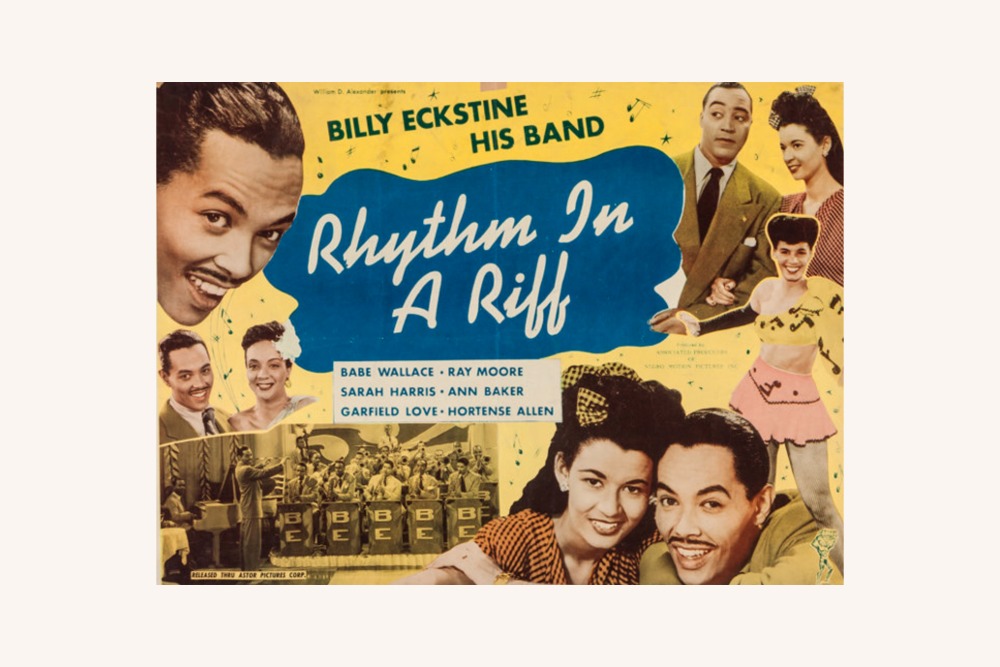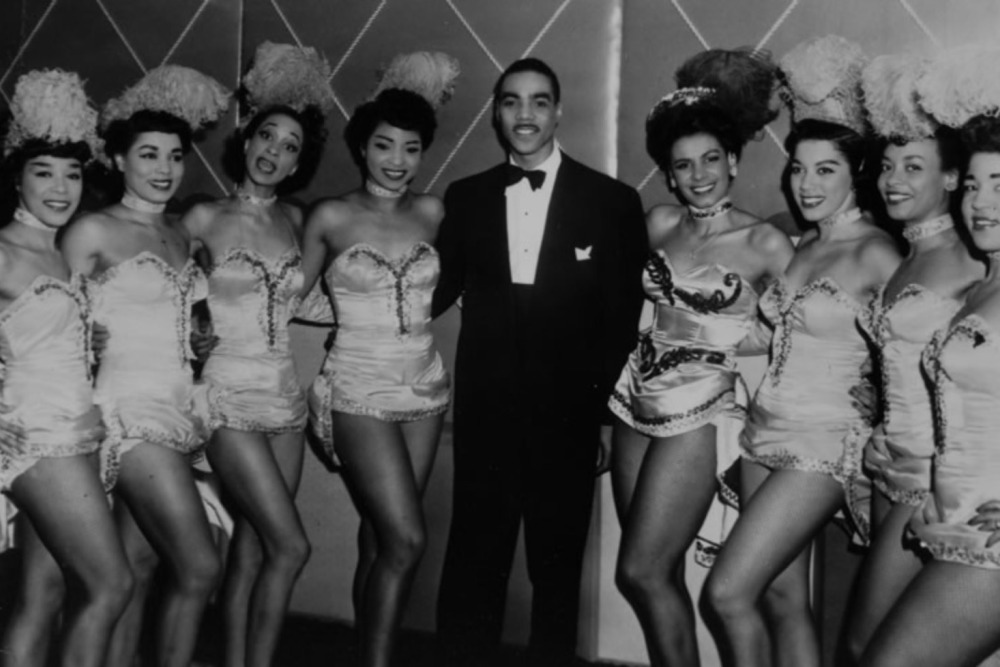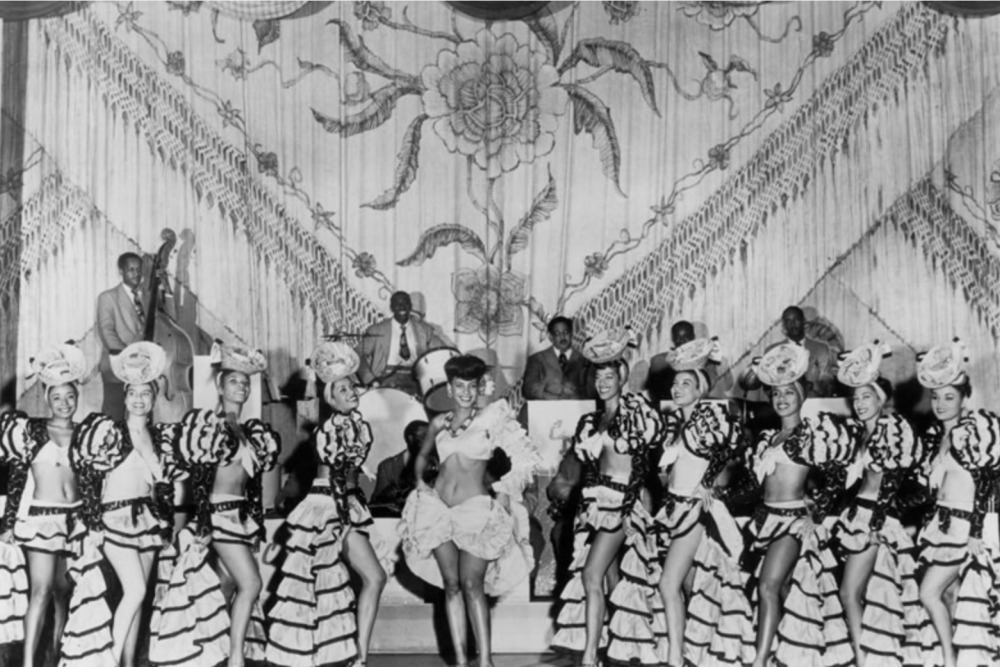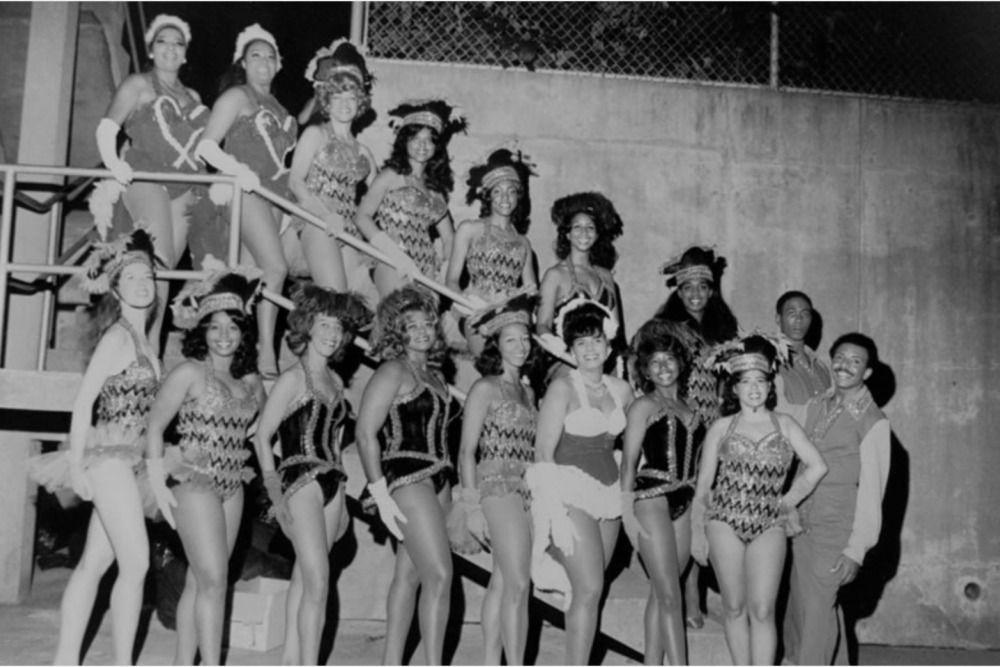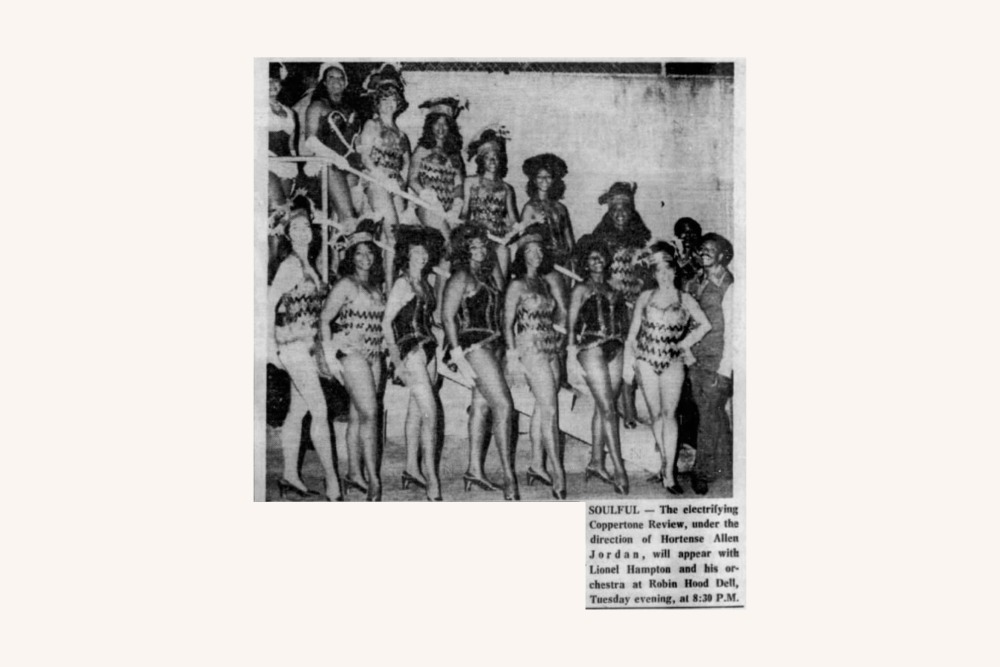From The Vault: Hortense Allen Dancers at Robin Hood Dell
MANN MUSIC ROOM: VAULT
Blog Entry by Jack McCarthy, Historian, The Mann Center for the Performing Arts
The Mann Center traces its history to the Robin Hood Dell, which opened in 1930 in East Fairmount Park as a summer home for The Philadelphia Orchestra. In 1976 the organization moved to a new venue in West Fairmount Park. Originally called Robin Hood Dell West, it was later renamed the Mann Music Center in honor of its longtime director and benefactor Frederic Mann, and subsequently renamed the Mann Center for the Performing Arts.
One of the performing groups that appeared regularly at the Robin Hood Dell in the early 1970s was the Coppertone Review, a Philadelphia-based mostly female African American dance troupe led by the versatile Hortense Allen Jordan, a longtime dancer, choreographer, costume designer, and producer. Jordan and her dance troupes, known for many years as the Hortense Allen Dancers, were a fixture in the world of Black entertainment in Philadelphia and beyond in the mid to late twentieth century.
Hortense Allen was born in 1919 in St. Louis and by her early twenties had carved out a successful career in the Midwest as a dancer and choreographer. She had a featured role in the 1947 short film, Rhythm in a Riff, dancing with the Billy Eckstine Orchestra. A few years later, impresario Larry Steele hired her to come east and lead the dancing at Club Harlem, the legendary African American entertainment venue in Atlantic City. Steele was one of the nation’s most successful African American producers at the time and his “Smart Affairs” stage show was a popular attraction at Club Harlem from 1946 to 1971. Allen was in charge of the dancing, an integral part of the Smart Affairs shows at the club, for many years. While not formally designated as such, she was, in effect, a “producer”—she hired and trained the dancers, choreographed the routines, and designed and even sewed the costumes. While she sometimes danced in the shows herself, more often than not it was the Hortense Allen Dancers dancing under her direction, but without her performing.
Based in Philadelphia for most of her career, Allen toured often and worked with some of the top African American bandleaders over the years, including Louis Jordan, Count Basie, Lionel Hampton, and James Brown. She was the first African American woman to lead a dance troupe at the famed Paramount Theatre on Broadway in New York City in the 1950s. Nicknamed “The Body,” Allen cut a regal figure. Longtime Philadelphia dancer and choreographer LaVaughn Robinson remembered in the 1950s attending the Earle Theatre, Philadelphia’s premier music venue during the big band era, and being mesmerized as the curtain opened to Hortense Allen dancing on top of a big drum. Allen and her dance troupes worked many of the top places that featured African American entertainment in and around Philadelphia in the 1950s and 1960s: the Uptown Theater in North Philadelphia; the Red Hill Inn in Pennsauken, New Jersey; the Underground, a popular club in Center City; and others.
In 1955 Hortense Allen married Ted Jordan, a Philadelphia police detective who later was appointed the city’s deputy commissioner for recreation. At some point, she formed a troupe called the Coppertone Review and it was this group that appeared at the Robin Hood Dell annually in the early 1970s, dancing with the big bands of Lionel Hampton, Count Basie, and Woody Herman. The Philadelphia Inquirer review of the August 28, 1973 Lionel Hampton show at the Dell noted that, “Each half of the program was opened by the Coppertone Review, headed by Hortense Allen Jordan. The 17 not overly-clad girls and the two fully-costumed boys, accompanied by the band, scored in a conventional high-kicking number and a tap-dancing bit.” These shows represented somewhat of a throwback at that time, in that featuring dancers as part of a big band concert, a common practice during the big band heyday of the 1930s and 1940s, had largely fallen out of favor by the 1970s.
Following the opening of the new Robin Hood Dell West in 1976, Jordan’s dancers continued performing for several years at the original venue, re-christened Robin Hood Dell East. The Dell East featured mainly African American artists in the post-1976 period. Retired in her later years, Jordan returned to the field briefly in 1994 to serve as artistic director for “Stepping in Time,” a music and dance revue of African American performers produced by the Philadelphia Folklore Project. Hortense Allen Jordan died in Philadelphia in 2008 at age eighty-eight.
Many thanks to Germaine Ingram and the Philadelphia Folklore Project for providing historical information and photographs for this article.
